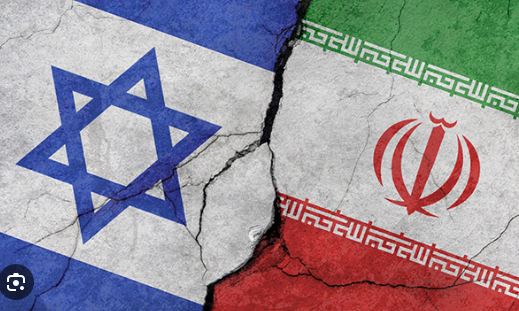Analysis
Abdul Waheeh Khan
For years, Israel and Iran waged a hidden war—a conflict fought through cyberattacks, covert assassinations, and proxy militias across the Middle East. By 2025, that shadow war erupted into direct confrontation.
This was no sudden explosion, but the inevitable result of unchecked strategic ambition, critical miscalculations, and diplomatic failure. Both sides overestimated their deterrence capabilities, pushing boundaries until the line between proxy warfare and open conflict vanished entirely.
Israel, emboldened by unconditional Western support, escalated extraterritorial strikes—sabotaging nuclear sites, targeting Iranian personnel, and framing its actions as “defensive” while entrenching military dominance. Iran, meanwhile, expanded its proxy networks, leveraging them for influence while evading direct accountability. Its strategy blurred the line between self-defense and destabilization.
Gradually, aggression intensified. Israel expanded operations beyond its borders; Iran shifted from covert deterrence to overt retaliation, launching drone strikes and maritime attacks. With diplomacy absent, tit-for-tat reprisals spiraled into all-out war—likely beyond either side’s original intent.
Contrary to simplistic narratives, neither was purely reactive. Israel deliberately escalated, confident it could control the fallout—a fatal misjudgment. The region, already fragile from shifting U.S. priorities, Arab-Israeli normalization, and Iran’s expanding influence, was pushed to the brink.
When rockets struck Tel Aviv, Israel responded with overwhelming force—unleashing its full arsenal on Gaza, one of the world’s most densely populated and impoverished territories. Entire neighborhoods were erased. Infrastructure collapsed. Humanitarian corridors were blocked. Tens of thousands perished—mostly women and children—buried under rubble or killed in strikes on homes, shelters, and hospitals.
Beirut, too, faced Israeli airstrikes, but Gaza bore the weight of total war. The asymmetry was undeniable: Israel endured disruption; Gaza faced annihilation. Civilians—trapped, besieged, with nowhere to flee—became the primary casualties. The distinction between battlefield and home vanished.
As borders dissolved and proxy fronts collapsed, the region descended into chaos. Palestinians suffered most, but Lebanese, Syrians, and Israelis were also swept into the storm. What began as calculated proxy warfare had spiraled into a humanitarian catastrophe.
Ironically, Israel and Iran mirrored each other’s tactics. Israel’s security doctrine, once rooted in preemption, increasingly resembled the very strategies it condemned in Tehran: covert strikes, political interference, and the weaponization of deterrence. For both, deterrence became a language of escalation, not restraint.
At the core of this breakdown lay mutual miscalculation. Iran overestimated its asymmetric capabilities, underestimating Israel’s technological edge and willingness to strike. Israel exaggerated Iran’s threat, framing every maneuver as existential while dismissing Tehran’s ideological resilience. Each side interpreted the other’s moves as provocation, justifying its own aggression as defense—reinforcing a cycle of mistrust and violence.
Though a ceasefire now holds, the damage is irreversible. Israel, despite its military superiority, faces internal dissent, regional isolation, and a weakened deterrence posture. Iran, defiant but economically shattered, is diplomatically cornered—its proxy strategy exposed as a path to chaos.
The Arab world, once inching toward normalization with Israel, now recoils as public outrage surges against foreign aggression and domestic repression. The U.S., abandoning any pretense of mediation, shattered its neutrality by backing Israel’s devastation of Gaza and striking Iranian nuclear sites. Its role shifted from peacemaker to belligerent—its credibility in ruins.
Donald Trump’s ultimatums—demanding Iran’s surrender, Tehran’s evacuation, and regime change—proved mere political theater. They failed to topple Iran’s leadership but succeeded in exposing America’s declining strategic influence. Empty threats eroded Washington’s deterrence and handed Tehran a propaganda victory. Far from isolating Iran, the spectacle fractured global diplomacy, revealing a superpower that speaks loudly but stands alone.
In a grim irony, Pakistan’s nomination of Trump for the Nobel Peace Prize—a transparent bid for favor—rings hollow amid the rubble.
This war was not inevitable. It was the product of militarism, unaccountable leadership, and global apathy. Both Israel and Iran must confront an uncomfortable truth: security built on domination breeds endless war, not peace.
The path forward demands not louder threats or deadlier weapons, but mutual recognition, sovereignty, and the moral imperative to protect civilian lives. If these lessons go unheeded, the next war will be wider, bloodier, and beyond containment.
The views expressed in the article are writer’s own

















